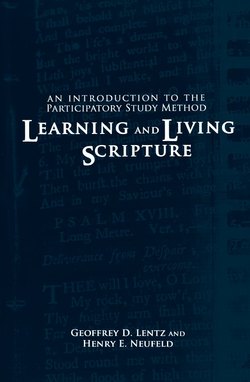Читать книгу Learning and Living Scripture - Geoffrey D Lentz - Страница 21
На сайте Литреса книга снята с продажи.
ОглавлениеMaterials
Each person will use different materials. There are three major elements in deciding what materials you will use:
1 Notes If you like to take notes, you may want some extra note paper. Look for a size of paper that is easy to use, and also easy to preserve and organize. Pens or pencils for notes can be of any color you choose. Many Bible students use different colored pens in underlining, and occasionally in note taking, with the various colors indicating particular subjects. Some people don’t find that color coding helps them a great deal, but don’t hesitate to invest in some pens if it does. I tend to keep my notes in the margins of my Bible. As one of my wedding presents I received a New Revised Standard Version, printed by Cambridge University Press in their wide margin Minster text. I can take notes in the margins and add cross-references. I even keep complete sermon notes in the margins simply by giving my next scripture reference along with each key point. Recently, I have started to keep many of my notes in my Logos Bible software, which keeps them organized, and prevents me from discarding scraps of paper that have crucial notes. The bottom line here is to do what works, both in terms of colors and where you keep your notes.
2 Underlining Again, there are different approaches. Some readers tend simply to underline key points in the author’s devel-opment of his idea. I find using a highlighters with a colored flag dispenser attached helpful to tap items for follow up study. Highlighters and/or colored pens can make it easy to track down materials on a particular subject. Again, there are no rules here, but get the materials you need to mark texts and keep the notes you want for your study.
3 Purpose of your Study Consider the purpose of your study. There are several places in in this text where we suggest reading large portions of scripture quickly in order to get an overview. If you are going to sit down to read quickly, you may need nothing other than your Bible and a place to sit. If you are reading for an overview, resist the temptation to underline or take notes. As you read quickly, try to take in the whole picture.
Here are some possible materials and how they would be used.
Pen Note taking, including marginal notes if your Bible allows
Colored pens or highlighters Mark passages according to topic
Good study location, desk, lighting Make yourself comfortable while you study
Music or other background sound Some people like to study with praise music running
Notebook If you prefer to take notes somewhere other than your margin
Computer Allows you to use Bible study software or to take notes
Devotional guides If you have trouble deciding where to start
Attitude Preparation
Your attitude preparation is really very simple. Get ready to listen and discern, but not to condemn. You are going to be reading about people who lived in a culture very different from your own.
Reading with an open mind doesn’t mean that you accept everything that the characters or even the writers say and do. You don’t have to view their culture as the ideal. What you do need to do is understand their actions within the limits of what they knew and within their circumstances. It’s very easy to assume that someone should have known better when you don’t understand their situation.
For example, much of the violence in the Bible needs to be understood in the context of the times. We’re not going to try to resolve all of the issues that result from incidents of violence in the Bible in this book, but we would like to suggest some ideas that must be a part of understanding violent passages.2 Christians have often reacted in one of two extreme ways. Some would reject all of those passages by rejecting the entire Old Testament, claiming it is superseded by the New. That does eliminate many difficult passages, but it both leaves some unresolved issues with the New Testament, and it tends to cut off a large percentage of the way in which God has worked with people. On the other hand, some Christians use violent passages in the Bible to justify being violent people now; if the Israelites could make war and wipe out whole cities, we are justified in advocating the same thing. If the Israelites stoned people to death, we can do the same.
It looks as though God’s message in the Bible had to be targeted at the situation in which people lived. Reform is not as easy to implement as we may think. Thus one needs to understand people’s violent actions in the context of a violent world. At the same time, one cannot justify actions now based on the situation then. The question for a Christian would be, what direction is Jesus leading us? Is Jesus calling us to violence or to more peaceful action? This can be a complex question, but is part of the joy of Bible study.
First, learn to understand what people did and why in their context, then as you study you may be able to learn what God was trying to do with them, and by extension what God is trying to do in your own life.
